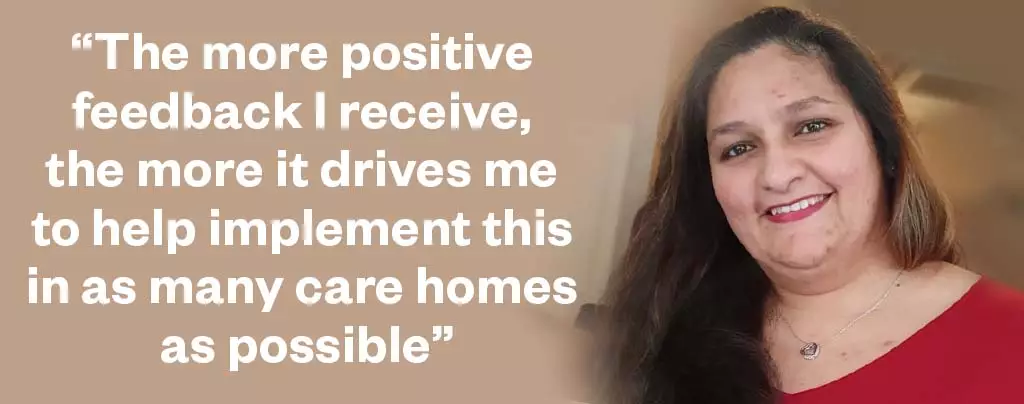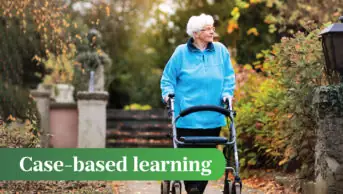
Shutterstock.com
I have worked in pharmacies in various settings for more than 22 years, but most recently, in my work with care homes, I feel I have found my passion.
It has been so rewarding and has given me immense pleasure to see how my work has been able to make a difference to residents’ lives. Of course, this has been even more important during the COVID-19 pandemic, when we are protecting the most vulnerable members of society from getting ill.
During the pandemic, my clinical commissioning group (CCG) decided to roll out ‘proxy access’ in care homes, enabling staff to order medication online by gaining access to information in GP records and acting on behalf of a care home resident. With the consent of the patient, or their representative, care home staff are able to access repeat medication requests, messaging and blood test results online through the proxy system.
Proxy access has existed for some time, allowing parents of young children or carers to act in the best interests of the person they are looking after. However, until recently, it has not been widely adopted in care homes.
Of course, that all changed during the COVID-19 pandemic, when many healthcare services shifted to online provision to reduce social contact.
The proxy feature has gone through rigorous analysis to ensure there are no data privacy risks, but it can still be hard to get to grips with in the beginning. I took on the challenge of implementing this new system in the care homes in Surrey Downs, training myself by attending webinars and liaising with colleagues from other CCGs who had already started the process.

Mira Makhecha
I was able to adapt some templates that had been created by others, and support both care homes and GP staff throughout the transition process to the new system. Owing to government restrictions on meeting indoors, I coordinated all of this by meeting with GP surgery and care home staff using Microsoft Teams and Zoom.
While, initially, this felt like a daunting process, I found that everyone welcomed the idea of implementing proxy access to records and I have received very positive feedback from everyone involved in the process since its implementation in 40 care homes in Surrey Downs since October 2020.
Proxy access has reduced medication waste and is safer for patients. There is a clear audit trail, with care home staff able to order medication online on the Patient Access system, see the quantity that was ordered and the date of the last order. This also gives care home staff an opportunity to tidy up records by highlighting any discrepancies in quantities to the GP, meaning the information recorded is more accurate and, therefore, increasing patient safety and reducing the risk of errors and safeguarding issues. We estimate this has saved the NHS approximately £800–£1,000 on average per year from each care home.
Medication delivery times to the care home have also improved, and the care home no longer has to chase prescriptions up from the GP surgery or pharmacy. They can also see the journey of the prescription on the ‘Patient Access’ system. The order goes straight to the GP, who can approve it in good time as there are no hand written scribbles required — as a result, medication queries have reduced by almost 50% since the introduction of proxy access.
The increased efficiency and security in the delivery of care has been well received by healthcare professionals and care home staff, and the more positive feedback I receive, the more it drives me to help implement this in as many care homes as possible.
If you are thinking about introducing a similar system, there are some things of which to be mindful. The care home must have an NHS email or secure email access. Furthermore, a Data Sharing Protection toolkit assessment must be carried out and a data-sharing agreement must be in place between the care home and the GP surgery.
Additionally, the care home should obtain consent from their resident, or their ‘lasting power of attorney’, before implementing proxy access for that individual. Obtaining consent in a timely manner has been an obstacle, owing to high care home staff turnover, IT issues and increased workload on care home staff. Initially, it took some time to overcome these issues, but after collaboration with care home staff and GP surgeries in my area, I have been able to build a robust framework that helps in dealing with any potential issues in an efficient manner.
However, by far, the most important factor for success has been building a strong relationship with GPs, their staff, care home staff and community pharmacy. I have been proud to lead such collaborative working with multidisciplinary professionals and teams in my area, and I look forward to my next project!
Mira Makhecha is a senior pharmacy technician for NHS Surrey Heartlands Clinical Commissioning Group and Epsom Primary Care Network, and an education supervisor for the Centre for Pharmacy Postgraduate Education


